Harald Braun
出生 : 1901-04-26, Berlin, Germany
死亡 : 1960-09-24

Writer

Director
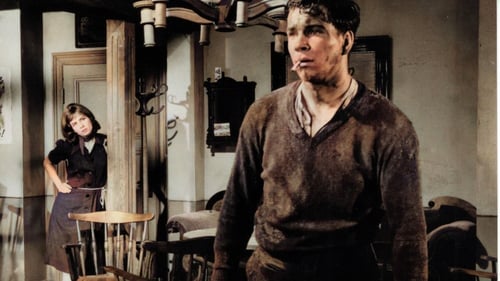
Producer
In 1959, in a small German village, the annual fair is set up. When a carousel is fixed firmly in the ground, a fair worker discovers a skeleton, a steel helmet, and a machine gun. The skeleton belongs to Robert Mertens, a plain soldier, who deserted in 1944 und flew to his home village. But when he arrived, no one wanted to help him, neither his former friends nor the minister, or even his own parents.

Writer
Second part of two of the saga of the troubled Buddenbrook family and their business in 19th century Germany.
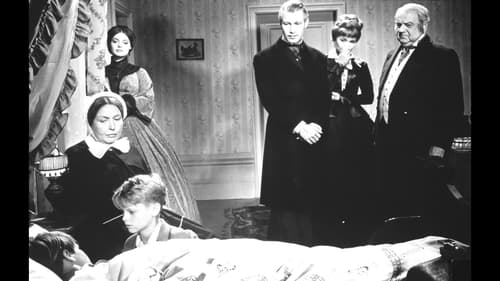
Writer
First part of two of the saga of the troubled Buddenbrook family and their business in mid 19th century Germany.

Director

Producer
'The Rest Is Silence, a German-made attempt to update Shakespeare, is one of the best and least self-conscious of this minor genre. As indicated by the title, the film's script is a "mufti" version of Hamlet, with young Hardy Krüger trying to prove that his uncle has killed his father. Direct references to the Shakespeare original abound, right down to the re-enactment of the crime for the benefit of the Uncle and the periodic appearances of the ghost of the hero's father.'

Teleplay

Director

Director

Teleplay

Director

Writer
Katja Fleming has given up her job as an actress and married the business man Robert Fleming. But the cold that surrounds her in her modern, luxurious high-rise makes her lonely. Then she meets the author John Lawrence, who wants to convince her to perform in his new play.

Director
Katja Fleming has given up her job as an actress and married the business man Robert Fleming. But the cold that surrounds her in her modern, luxurious high-rise makes her lonely. Then she meets the author John Lawrence, who wants to convince her to perform in his new play.

Producer
A poor 22 years old Hungarian man who's recently arrived in Paris meets a seemingly wealthy 17 years old Parisian girl. They fall in love, but tragedy ensues when the truth behind the girl is revealed.

Producer

Writer

Director
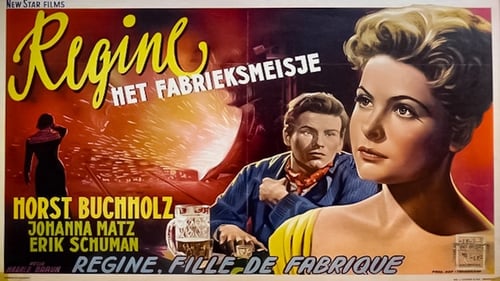
Director
Martin Lundt, heir to his family's industrial business, falls for and, against his family's wishes, weds the family maid, Régine. Soon thereafter, rumors begin to circulate about Régine's faithfulness and being to haunt Martin.

Producer
Helga, a stewardess, meet a passenger, Eric, during a flight to Athens. They fall in love, but he is married. Later Helga is involved in a flight crash. One of the severely injured passengers is Eric's wife Maria.

Producer
Anna is a factory worker in East Germany. Her five-year-old son Jochen lives with his grandparents in the West and Anna wants him to live with her, so she abducts him. Along the way she meets Carl who helps her with her son and they fall in love.

Director
A hotel employee loses his sense of self-respect when he is demoted.

Producer

Producer

Director
This is a German version of Thornton Wilder's play, Our Town.

Director

Director
An American heiress in Europe falls in love with a German prince, but he is required to marry someone else for reasons of state convenience.

Writer
Karin Twerdy used to be an opera singer but now, in order to pay for her daughter Daniela's education in a religious school, she performs in a shady nightclub. Industrialist Dietrich Gontard, the father of Karin's school friend Christa, falls for her. But when he learns the truth about her he is outraged and rejects her. At a loss and not to stand in the way of Daniela's future, Karin chooses to disappear...

Producer
As Long as You're Near Me (German: Solange Du da bist) is a 1953 West German drama film directed by Harald Braun. It was entered into the 1954 Cannes Film Festival.

Director
As Long as You're Near Me (German: Solange Du da bist) is a 1953 West German drama film directed by Harald Braun. It was entered into the 1954 Cannes Film Festival.

Producer
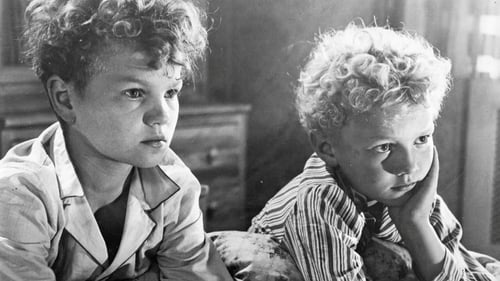
Producer
A widowed father advertises for a new maid, but his children secretly seek a woman to be his new wife.

Director
A widowed father advertises for a new maid, but his children secretly seek a woman to be his new wife.

Producer
Directed by Harald Braun and told from the perspective of Bertha von Suttner, the first female to receive the Nobel Peace Prize, The Alfred Nobel Story - No Greater Love chronicles the life of scientist, inventor, and businessman Alfred Nobel. Nobel built a massive fortune throughout his life, and while much if it was amassed by his inventions--dynamite being perhaps the most notable--he was also revered for his discoveries within the fields of science and economics. Upon his death, Nobel decided that his fortune was simply too great to continue in the form of an inheritance or single charitable donation, opting instead to use the money as reward for the greatest contributors to physics, chemistry, medicine, literature, and, of course, peace.

Writer
Directed by Harald Braun and told from the perspective of Bertha von Suttner, the first female to receive the Nobel Peace Prize, The Alfred Nobel Story - No Greater Love chronicles the life of scientist, inventor, and businessman Alfred Nobel. Nobel built a massive fortune throughout his life, and while much if it was amassed by his inventions--dynamite being perhaps the most notable--he was also revered for his discoveries within the fields of science and economics. Upon his death, Nobel decided that his fortune was simply too great to continue in the form of an inheritance or single charitable donation, opting instead to use the money as reward for the greatest contributors to physics, chemistry, medicine, literature, and, of course, peace.

Director
Directed by Harald Braun and told from the perspective of Bertha von Suttner, the first female to receive the Nobel Peace Prize, The Alfred Nobel Story - No Greater Love chronicles the life of scientist, inventor, and businessman Alfred Nobel. Nobel built a massive fortune throughout his life, and while much if it was amassed by his inventions--dynamite being perhaps the most notable--he was also revered for his discoveries within the fields of science and economics. Upon his death, Nobel decided that his fortune was simply too great to continue in the form of an inheritance or single charitable donation, opting instead to use the money as reward for the greatest contributors to physics, chemistry, medicine, literature, and, of course, peace.
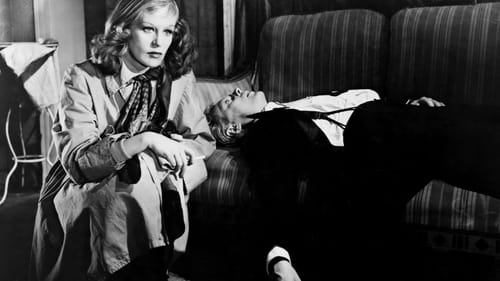
Location Manager
An aging truck driver finds smuggled money and becomes involved with a hijacking crowd.

Producer
Two out of work musicians put on drag to get work in an all girl band. Inevitable comical romantic complications ensue.

Director
The Falling Star (German: Der Fallende Stern) is a 1950 West German drama film directed by Harald Braun. It was entered into the 1951 Cannes Film Festival.

Producer

Writer

Director

Screenplay
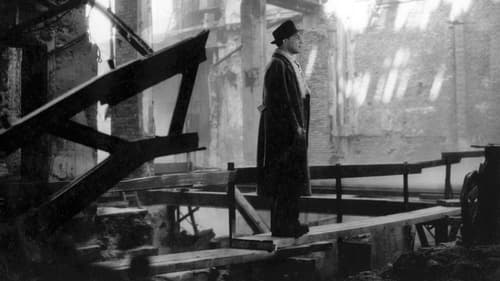
Writer
A group of people gathers back in the post-war ruins of a luxurious Munich hotel they inhabited at one point or another years before; each trying to cope with the tragic consequences of the war and their own actions.

Director
A group of people gathers back in the post-war ruins of a luxurious Munich hotel they inhabited at one point or another years before; each trying to cope with the tragic consequences of the war and their own actions.

Writer
Whodunit centered around a hostel.

Director
Whodunit centered around a hostel.

Screenplay

Director
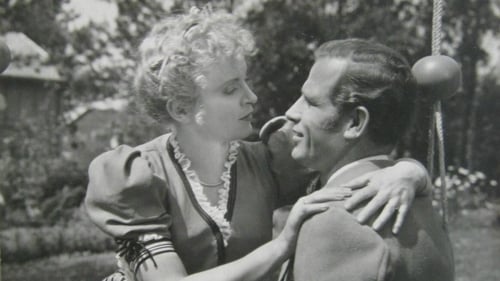
Screenplay
The film is an adaptation of Henrik Ibsen's play A Doll's House. The film uses Ibsen's alternate ending where the unhappy couple are reconciled at the end

Director
The film is an adaptation of Henrik Ibsen's play A Doll's House. The film uses Ibsen's alternate ending where the unhappy couple are reconciled at the end

Director

Director
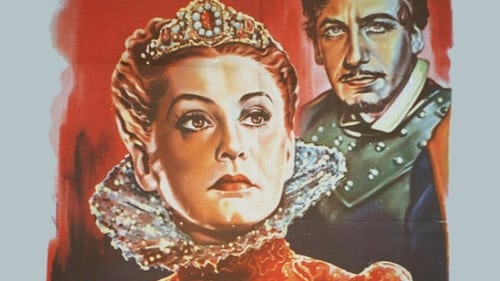
Writer
As the title "The Queen's Heart" suggests, this early German black and white version of Mary Queen of Scott's eventful reign and death focuses on her emotional perception rather lyrically, with some songs, mainly by her.

Assistant Director
Four graduates of an industrial design school team up and form a small business. The protagonist is so excited by the venture that she turns down the proposal of her dashing instructor. Time passes and her three partners lose interest in the business for different reasons. This leaves the heroine who has a change of heart and decides to forgo the business and marry the instructor after all.

Writer
In 1885, famous New York Metropolitan Opera singer Maddalena dall' Orto is scheduled to perform at a festival in the German residence of Ilmingen. It soon becomes obvious that she is non other than Magda von Schwartze, who left the town eight years ago against her father's wishes to become a singer.




























